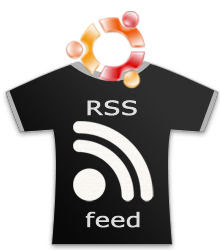
Acabo de instalar la nueva versión de Ubuntu 9.10 Karmic Koala y, como siempre, he comenzado a adaptarla a mis preferencias.
Segunda y última parte de esta pequeña guía.
Instalar formatos complementarios para archivos comprimidos
Para poder comprimir o descomprimir archivos utilizando formatos tan populares como 7zip o rar, tienes que añadir esto:
sudo aptitude -y install rar p7zip-full unace unzip
Instalar gestor de efectos de Compiz
Si quieres cambiar el comportamiento de Compiz y Emerlad de una forma muy sencilla e intuitiva, necesitas la siguiente orden:
sudo aptitude -y install compizconfig-settings-manager emerald
Después de esto, podrás administrar Compiz a través del menú Sistema > Preferencias > Administrador de Opciones CompizConfig y Emerald desde el menú Sistema > Preferencias > Gestor de Temas de Emerald.
Pero, además, si quieres administrar todas estas características desde un icono en el área de notificación, puedes recurrir a:
sudo aptitude -y install fusion-icon
Nota: Si, después de esto, no se carga Emerald en el inicio de la sesión, o experimentas algún otro problema, debes acceder a Sistema > Preferencias > Administrador de Opciones CompizConfig y buscar el plugin Decoración de ventanas dentro del apartado Efectos. Una vez abierto, en el campo Comando escribe la siguiente línea:
/usr/bin/emerald --replace
Instalar programas de mensajería instantánea
Nuestro flamante Ubuntu 9.10 Karmic Koala ya trae incorporado Empathy, que es uno de los clientes de mensajería instantánea más potentes. De todas formas, si ya te habías acostumbrado a Pidgin, que era el que venía preinsatlado en Ubuntu 9.04, sólo tienes que escribir:
sudo aptitude -y install pidgin
Y si prefieres probar algún otro, aquí tienes dos más:
- aMSN (un cliente de mensajería instantánea compatible con Messenger)
sudo aptitude -y install amsn
- Emesene (un clon de MSN Messenger multiplataforma desarrollado en Python y GTK+2)
sudo aptitude -y install emesene
Instalar el navegador Chrome
Chrome, el navegador de Google, ha obtenido bastante relevancia muy rápidamente. Si eres de los que ya no pueden vivir sin su velocidad, puedes instalarlo de una forma muy sencilla escribiendo esto en la consola:
sudo add-apt-repository ppa:chromium-daily
sudo aptitude update && sudo aptitude -y install chromium-browser chromium-browser-l10n chromium-codecs-ffmpeg-nonfree chromium-codecs-ffmpeg
Instalar programas de descargas
Ubuntu Karmic Koala incluye Transmission, un cliente Bittorrent multiplataforma, pero yo incluyo dos más, para que tengas donde elegir, además de un cliente compatible con el conocido eMule:
- aMule (el cliente p2p compatible con emule):
sudo aptitude -y install amule
- Deluge (cliente para BitTorrent muy utilizado):
sudo aptitude -y install deluge
- Vuze (antes Azureus, un cliente de BitTorrent de código abierto y desarrollado en Java):
sudo aptitude -y install vuze
También conviene instalar un algún que otro gestor de descargas tradicional. Aquí te propongo algunos:
- Multiget:
sudo aptitude -y install multiget
- Gwget (interfaz gráfica del wget):
sudo aptitude -y install gwget

Y por supuesto, no nos debe faltar JDownloader y/o Tucan para las descargas de Rapidshare y Megaupload. Puedes instalarlos leyendo estos artículos:
Instalar plugins para Firefox MozPlugger es un plugin que nos permite integrar aplicaciones externas para ver archivos descargados de Internet y que Firefox, por defecto, no puede manejar. Por ejemplo, abre en el navegador archivos PDF. Para instalarlo, escribe lo que sigue en tu consola:
sudo aptitude -y install mozplugger
También es muy recomendable activar el diccionario de Español para que nos corrija las faltas de ortografía cuando escribimos en el navegador.
Una cuestión de aspecto
En el artículo dedicado a la versión 9.04, comenzaba diciendo que, lo primero que suelo hacer después de una nueva instalación es cambiar el aspecto de Ubuntu, para adaptarlo un poco más a mis gustos personales. Para esa tarea suelo utilizar Epidermis (del que ya hablamos en un artículo anterior) o Gnome-Art NextGen (al que también le dedicamos otro artículo). Sin embargo, en el momento de escribir este artículo ninguno de los dos funciona de forma correcta en Ubuntu Karmic Koala, aunque estoy seguro de que será cuestión de días.
Si aún así quieres cambiar un poco el maquillaje de tu Koala, puedes recurrir a alguno de los siguientes sitios:
Y por supuesto, si realmente quieres hacerte una idea de todo lo que puedes cambiar del aspecto de Ubuntu 9.10 y hasta qué punto puedes personalizarlo, te aconsejo que le eches un vistazo a nuestra sección Personalizar Ubuntu. Además, se trata de una página que actualizamos regularmente, por lo que te recomiendo que te pases de vez en cuando.

Mejorar la gestión de fuentes
fc-cache localiza los directorios de fuentes en el sistema y construye una caché con información sobre ellas. Esta caché es usada por aplicaciones que utilizan fontconfig para gestionar las fuentes, lo que hace que se carguen más rápidamente. Para instalarlo, debemos escribir esto:
sudo fc-cache
Recuerda que, aunque el conjunto de fuentes preinstaladas en Ubuntu es bastante amplio, es muy fácil añadirle otras nuevas.
Bueno, pues con esto creo que ya va bien. Puede que aún eches algo de menos, pero hemos completado bastante el resultado de la instalación por defecto de nuestro nuevo Ubuntu 9.10 Karmic Koala.
Un último apunte
Si la instalación se ha realizado sin conexión a Internet, el soporte del idioma habrá sido incompleto. Por ese motivo, la siguiente vez que se inicia el sistema, se obtiene un mensaje como el que ves abajo. La solución es tan sencilla como seguir las indicaciones de la ventana: Pulsar sobre el botón Ejecutar esta acción ahora o cerrar la ventana y realizar el proceso más tarde desde Sistema > Administración > Soporte de idiomas.
Soporte de idiomas incompleto

fuente: SliceOfLinux
Si te ha gustado el artículo inscribete al feed clicando en la imagen más abajo para tenerte siempre actualizado sobre los nuevos contenidos del blog:
Kate Stewart has announced the availability of the first alpha release of Ubuntu 12.04, code name "Precise Pangolin": "We are pleased to bring you the first set of developer images that capture the current fleeting reality of our Precise Pangolin (Ubuntu 12.04 alpha 1) as it starts to emerge. Alpha 1 includes the 3.2.0-2.5 Ubuntu kernel which is based on the latest mainline 3.2-rc3 Linux kernel. This is an update from the 3.0 kernel in Oneiric. Another noticeable change is the consolidation of the amd64 server flavor into the generic flavor. This will help minimize the maintenance burden over the life of this LTS release. The alpha 1 kernel also adds support for additional ALPS touchpads, contains an updated seccomp patch set, and numerous configuration changes. See the release announcement and release notes for a more detailed list of new features, changes and known issues. Download (SHA256): precise-desktop-i386.iso (703MB, torrent), precise-desktop-amd64.iso (695MB, torrent). Also made available today were 12.04 alpha 1 images for Kubuntu (download), Xubuntu, (download), Lubuntu, (download) and Edubuntu (download).
Kate Stewart has announced the availability of the second alpha release of Ubuntu 12.04, code name "Precise Pangolin": "Welcome to Precise Pangolin Alpha 2, which will in time become Ubuntu 12.04. Alpha 2 is the second in a series of milestone images that will be released throughout the Precise development cycle. This is the first Ubuntu milestone release to include images for the armhf architecture, for the ARM CPUs using the hard-float ABI. New packages showing up for the first time include Linux Kernel 3.2.2, Upstart 1.4, Unity 5.0, LibreOffice 3.5 beta 2. See the release announcement and read the detailed release notes for a more complete picture of what's new in this release. Download (SHA256): precise-desktop-i386.iso (714MB, torrent), precise-desktop-amd64.iso (712MB, torrent). Also released today were 12.04 alpha 2 images for Kubuntu (download), Xubuntu, (download, announcement), Lubuntu, (download), Edubuntu (download) and Mythbuntu (download).
























El Mundo de Ubuntu en las Redes Sociales
Espero que esta publicación te haya gustado. Si tienes alguna duda, consulta o quieras complementar este post, no dudes en escribir en la zona de comentarios. También puedes visitar Facebook, Twitter, Google +, Linkedin, Instagram, Pinterest, restantes Redes Sociales y Feedly donde encontrarás información complementaria a este blog. COMPARTE EN!